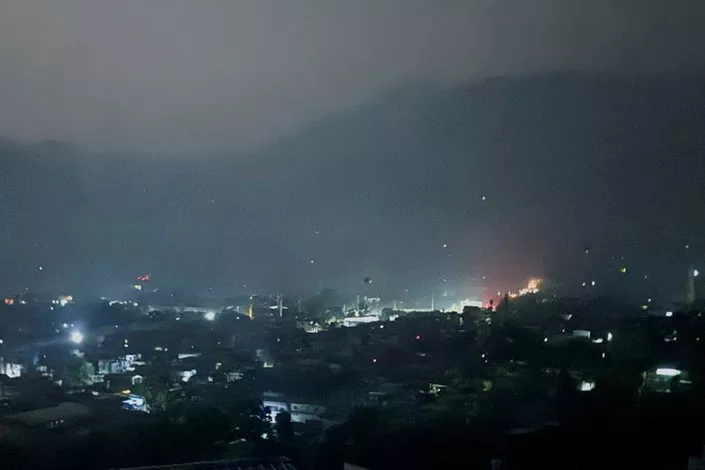Several international airlines, including United Airlines and Korean Air, rerouted or canceled flights on Wednesday after India carried out airstrikes on nine locations in Pakistan. About a dozen airports in India were also shut down, raising fears of a wider conflict.
India targeted areas in Pakistani-controlled Kashmir, claiming the strikes were against “terrorist infrastructure” tied to a recent attack in Indian Kashmir that killed 26 people. Pakistan denied hosting any such camps and responded by claiming it had shot down five Indian fighter jets.
Flight tracking websites showed many planes being rerouted over Oman, the UAE, and Kuwait, suggesting growing congestion in regional airspace.
Pakistan said 57 international flights were within its airspace when India launched its attacks. Prime Minister Shehbaz Sharif’s office criticized India’s move, calling it a “grave danger” to commercial flights from Gulf nations and warning that lives were put at risk.
India’s civil aviation ministry has not yet responded to Pakistan’s accusations.
In recent days, both India and Pakistan closed their airspace to each other’s airlines. International carriers like Lufthansa have also avoided flying over Pakistan.
Aviation advisory group OPSGROUP warned that Pakistan might completely close its airspace if tensions escalate further. A similar move happened between February and August 2019 during past clashes between the two nations.
Domestic travel has also been hit. Data from Flightradar24 showed that 3% of India’s and 17% of Pakistan’s scheduled flights were canceled by mid-morning Wednesday.
India’s biggest carrier, IndiGo, canceled 165 flights through Saturday morning. Shares of the airline dropped 1.1%. Air India, SpiceJet, and Akasa Air also reported cancellations.
Pakistan later said its airspace was open again and that all its airports were “fully functional.” However, flight maps showed that while some civilian planes were flying over Pakistan, Indian airspace near the border remained empty.
Growing Impact Across Regions
The disruption is adding pressure to airlines already dealing with unrest in both the Middle East and South Asia.
Dutch airline KLM has stopped flying over Pakistan, and Singapore Airlines suspended routes over the country starting May 6. Korean Air rerouted its Incheon–Dubai flight to fly over Myanmar, Bangladesh, and India instead of Pakistan.
United Airlines canceled its Newark–Delhi flight, citing “airspace limitations.” American Airlines also adjusted its New Delhi operations and is allowing passengers to change their plans without fees.
Thai Airways announced that all flights to Europe and South Asia would follow new routes starting Wednesday. Taiwan’s China Airlines said flights to London, Frankfurt, and Rome were also affected.
Flights from India to Europe are now taking longer paths. A Lufthansa flight from Delhi to Frankfurt took 30 minutes longer than usual, according to FlightRadar24.
Safety Concerns Over GPS Spoofing
The Association of Asia Pacific Airlines expressed concern about flight safety in conflict zones. In a statement, it highlighted the growing risk of GPS spoofing—a technique that manipulates satellite navigation data, potentially leading aircraft off course.
“Apart from rising costs and disruptions, GPS interference over conflict areas is one of the biggest threats facing the industry,” the group said.
As regional tensions rise, airlines and passengers may continue to face delays, longer routes, and growing uncertainty in the skies.
Related topics:


